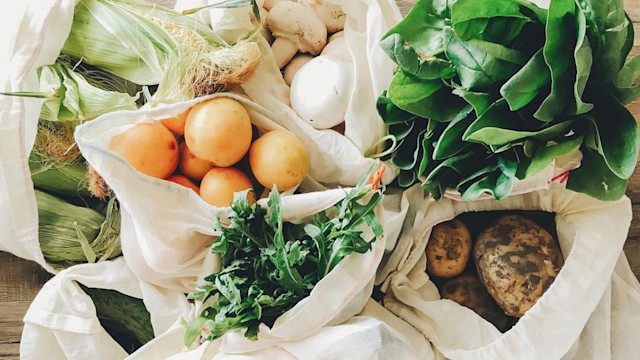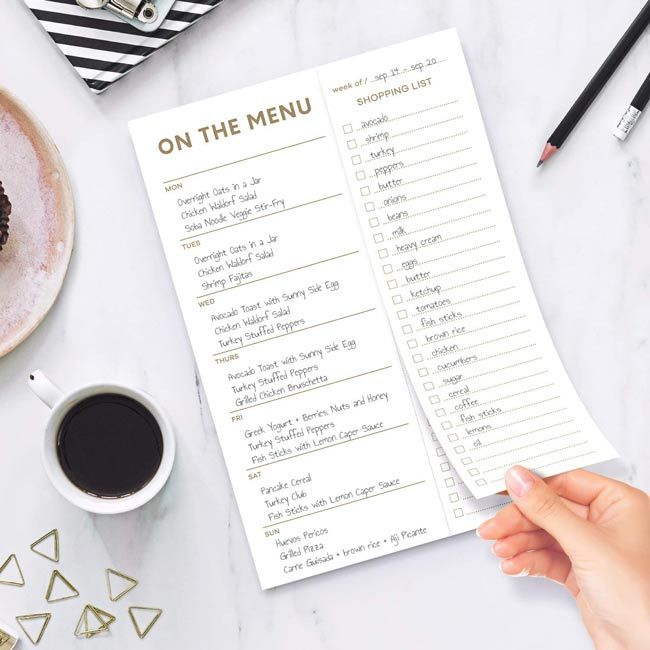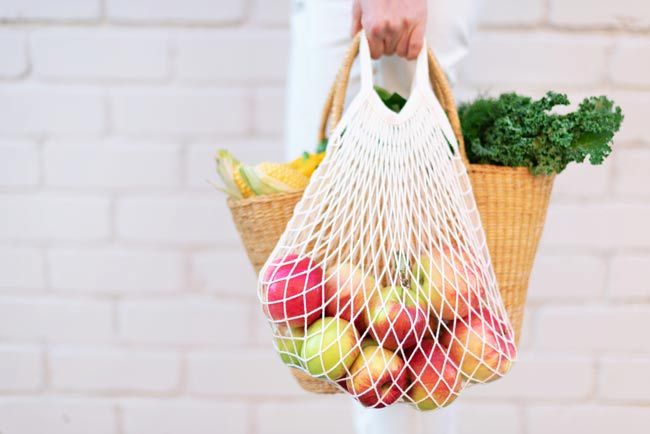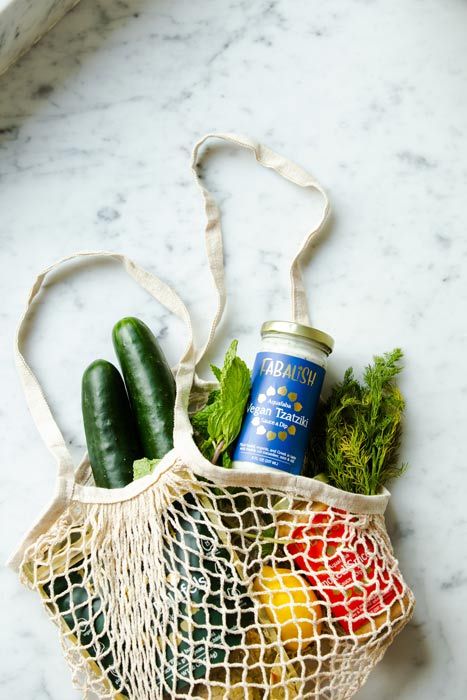The recent news that energy bills are rising isn't the only hike in charges we have to be concerned about this year. Latest data from Kantar reveals that annual food shopping bills are set to rise by an average of £180 as inflation increases the cost of groceries.
MORE: 10 genius ways to keep your house warm without paying for heating
In the first four weeks of 2022, the average price of groceries rose by 3.8%, with inflation hitting its highest in 30 years. Yikes. Luckily, personal finance experts at Ocean Finance have shared several simple ways to save hundreds on your weekly food shop, helping to bring that all-important cost of living down. And who doesn't love to save on their supermarket sweep?
WOW: 12 unbelievably easy ways to save £1k on energy bills
READ: How to meal prep: 3 easy steps to plan your meals like a pro
How to save money on your weekly food shop
1. Use supermarkets instead of convenience stores to save up to 9.5%
Convenience stores might be ideal for a grab-and-go snack or picking up a lottery ticket, however, research from Which? found that over the course of a year, you could be paying 9.5% more for shopping at local stores as opposed to regular supermarkets. Instead, make use of supermarket savings and benefit from a much cheaper grocery shop.
2. Always make a meal plan and shopping list
According to the Money Advice Service, people who make a shopping list before they head to the supermarket are three times less likely to overspend than those who don't. Making a family meal plan is also a great way to avoid food waste, ensuring you only buy exactly what you need.
Meal Planner with Tear-Off Shopping List, £8.99, Amazon
SHOP NOW
3. Shop in off-peak hours to benefit from reduced groceries
Keeping an eye out for yellow stickers is a great way to bag a bargain (or several) when shopping for groceries. Don't be put off by the use-by date either, many ingredients can be safely frozen to be eaten at a later date.
4. Try heading to the supermarket at the following optimal times for reduced items:
- M&S – An hour before they close
- Morrisons – 6pm
- Sainsbury’s – 6pm
- Asda – 7pm
- Waitrose – 6pm
While these can differ between stores, often going to the supermarket an hour before closing will offer the lowest reductions.
5. Save up to 38% on unbranded goods
Switching from your favourite brands can be daunting at first, but with the likes of Aldi winning awards for their own alcohol, grocery, and baby ranges, it is worth ditching the pricier brands. In 2021, Which? revealed Aldi as the cheapest supermarket of the year, with a basket of 22 branded and unbranded goods costing £24.03. This is 38% cheaper than Waitrose, at £33.06.
Money Saving Expert call this method 'downshifting'. They say: "Downshifting typically cuts grocery bills by 30%. Even if you only swapped half the items, that's still a 15% saving which could be £100s or £1,000s."
6. Never shop on an empty stomach
Curbing impulse buying is a key factor when it comes to sticking to your budget. Heading to the shop on an empty stomach can urge you to fill your trolley with quick-fix snacks that pile on the pounds on your bill. Head to the frozen aisle for your vegetables There are several benefits to buying frozen vegetables over fresh - and saving money is just one of them.
READ: 5 best storage hacks to keep food fresher for longer
SEE: 24 of the best kitchen gadgets that will revolutionise your kitchen
Heading to the chilled section for your five a day is an excellent way to limit food waste, only using what you need and preserving the rest for later. Research suggests that fresh vegetables lose their nutritional value over time, whereas frozen vegetables retain their goodness. Try bulk buying your frozen veggies to make the most of supermarket savings too. Most vegetables last eight to ten months in the freezers, so you don't need to worry about re-purchasing regularly.
7. Have some meat-free days
Research shows that meat-eaters spend an average of £752 on meat each year, alone. Just think of how much that could be reduced by implementing some vegetarian dishes into your weekly food plan. Plus, with more and more people considering a plant-based diet, there are now lots of tasty meat-free recipes to follow online.
8. Buy ingredients over ready meals
Although it may be tempting to reach for a microwave meal, evidence suggests purchasing ingredients and cooking from scratch can often save you money. Of course, there's a time and a place when a ready meal calls, but choosing savings over convenience is always a no-brainer.
Think purchasing premium, buttery ready-made mash (around £3.50). Although quick and easy, it's likely far more expensive than making it at home yourself (around £1).
9. Use loyalty cards
It’s a good idea to shop around, but at the same time, loyalty can pay off. Loyalty cards can help you to rack up points at your favourite supermarket, which can lead to some juicy savings. Just make sure no deals persuade you into buying something you wouldn't normally purchase.
Like this story? Sign up to our HELLO! newsletters to get other stories like this delivered straight to your inbox.












